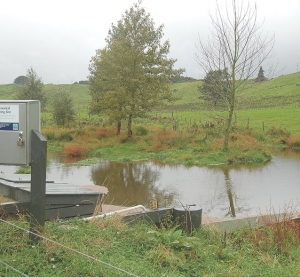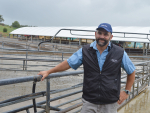“You are in the box seat,” Doug Edmeades of AgKnowledge told the audience of a hundred or more farmers. “I don’t want you to get angry; I want you to get informed.”
Edmeades armed the audience with nine questions to fire at their regional council. “I’ve run these questions past a number of regional councils and they say they’re quite prepared to answer them.”
But Edmeades later told Dairy News that, where he’s received answers to the questions, they’ve often not been in farmer-friendly terms: even as a highly qualified and experienced soil scientist he’s struggled to understand some responses, he admitted. “The information should be offered in a form and context that can be readily understood by a layman.”
The Land and Water Forum’s third report says regional councils should identify which contaminants limit water quality, and determine the total load of those nutrients in a watercourse and where they’re coming from, he pointed out.
Waikato Regional Council supplied him the data for the Hauraki River. It shows about a quarter of the nitrogen in the river is natural background loading, but most is draining from paddocks. “You see information like that… and you start to understand why we have to do this.”
The Hauraki data also showed the contribution of dairy effluent to be minimal, which prompts the question why there’s so much focus on that, when the problem is in the paddock, he added.
Bringing the issue home to the Canterbury audience, he relayed his analysis of a dairy farm client’s situation near Lake Ellesmere. Overseer estimated nitrate loss to be 121kgN/ha/year averaged across his four farms: three milking, one run-off.
Management changes and infrastructure investment including cutting stocking rate and installing a herd home could bring that down to 36kgN/ha/year but profit would be cut 30-40%. “The next question, is what impact would it have on the lake if we did that?”
The scientific advice Edmeades had received was that it would do nothing to improve the water quality because the problem with the lake is the lack of macrophyte (aquatic plant) beds.
Both Edmeades, and fellow speaker Ian Mackenzie, Federated Farmers’ national board member with responsibility for water issues, questioned why many regional councils are so focussed on nitrate, when there are three other contaminants – phosphate, sediment, and pathogens – that in many catchments are equally if not more important.
“I’m bemused why they’re so besotted with just one of these [four contaminants]…. Horizons’ One Plan is all about nitrogen: God knows why because the Manawatu river basically has a sediment problem,” said Edmeades.
Mackenzie described the focus on nitrates as “the dumbing down of how we address water quality” and suggested, by his own admission “facetiously”, that it’s a ploy by “the Greens” and other non-governmental groups to attack dairying and farming in general. “Nitrate myopia is an
anti-farming strategy, not a water quality strategy.”
He’s concerned at the limit setting approach to nutrient management and says Feds is advocating a good management practice, holistic approach. Some “more enlightened” regional councils are moving that way, he notes.
“A holistic approach to environmental stewardship; not just about numbers, not just about nitrates.”
He cited Taranaki as an example where regional council work with farmers to encourage riparian planting has raised river water quality to a point where there are only five sites not fit for swimming and “something like” three of those are due to waterfowl contamination.
“They’ve pretty much got to where the Government wants them to be without a single rule or regulation, which is pretty exciting.”
















